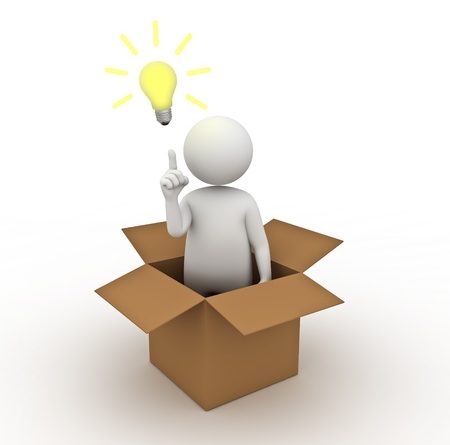The Dyslexic Project Manager
I am dyslexic. I am a Project Manager. I am a dyslexic project manager. On the surface, these things might not appear to go hand in hand. However, it is no stranger than a dyslexic author (there are plenty of those about). Some of my dyslexic coping strategies have become comparative strengths. Some of my dyslexic strengths help me to be really successful at work.
The pitfalls of a dyslexic project manager
I have a rather poor working memory. This means that remembering to do things can be a challenge. A large part of project management is getting stuff done so forgetting to do things can be a huge liability.
My poor working memory also makes it really hard for me to remember names when I meet new people. This can make it harder for me to form professional relationships or remember who agreed to what in a meeting.
I have a bizarre non-linear internal representation of time. This is really hard to understand but as some of my ADHD colleagues have experienced the same things I guess some of my readers will get this. I see time as compressible, expandable and not always sequential. This is not how we experience time in the real world and is not a sensible way to construct a project critical path.
I also struggle with detail. I can do detailed work but it requires loads of attention so it drains me. Things like finance management are an aspect of the job I don’t enjoy. To ensure I get it right and don’t make silly mistakes requires a focus I struggle to maintain and doing so exhausts me.
So to recap I might forget to do stuff. The stuff I do remember to do might be late due to my odd notion of time. I might forget important people on the project. The budget might be all over the place with overlooked invoices going past due. So far it is not looking like a good CV for a project manager. With these attributes who would want a dyslexic project manager?
The perks of a dyslexic project manager
As with every dyslexic my intrinsic weaknesses are only part of the story. I have coping strategies for the things that I am bad at. Coping strategies are such a massive part of my life that in some areas I don’t even consciously recognise that’s what I am doing. And I have strengths too.
I have developed a number of ways of keeping track of things and prioritising what I do. Projects of any scale are too big for anyone to keep all the parts in their head. I have never been able to keep much in my head but systems such as Kanban and techniques such as BuJu scale nicely. This gives me an edge as I am familiar with using tools to support my ability to get stuff done.
Due to my struggles with remembering details I tend to abstract, generalise and link to similar things. I might not remember the specifics of something but I remember characteristics (big, small, slow, fast etc). This can make it easier for me to sport patterns or relate a problem to something seemingly unrelated that has a common approach to solving.
I know that there are lots of things I am not particularly good at. I have become good at finding people who can cover those weaknesses. I have also cultivated a skill in working out how someone helping me can also achieve some things that they want and in doing so I can influence them to help me for mutual gain. This makes me comfortable and capable of delegating to others. Project management is essentially getting other people to do stuff so this is a great skill for me to have.
Life with dyslexia can be a challenge, especially in the school years. More important than the grades I left school with was the grit and drive to do hard things even when others perhaps thought I couldn’t. No, especially when others thought I couldn’t. This grit sees me through the toughest problems a project can check at me. Should I find myself in a situation I can’t fix I know I can call for help. I also know that you don’t always succeed and sometimes you have to learn from that and life moves on. Grit and resilience are really useful traits in a project manager.
Most people are, by definition, neurotypical. Many organisations are filled with similar people, form similar backgrounds who think in similar ways. This can be a serious weakness in a problem-solving situation and creativity because of groupthink. I can be like a wild card coming up with different ideas form a different perspective. This point goes wider than cognitive diversity. A heterogeneous team with people from different backgrounds has a rich diversity that can be a powerful creative and problem-solving force.

